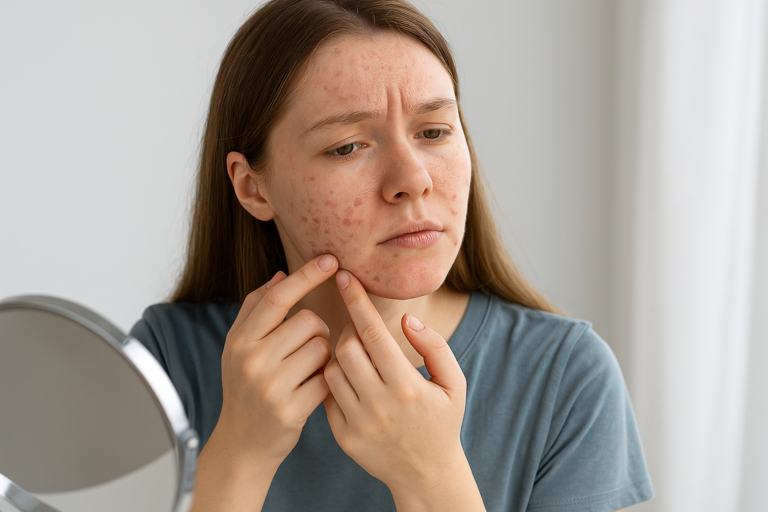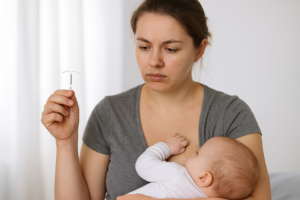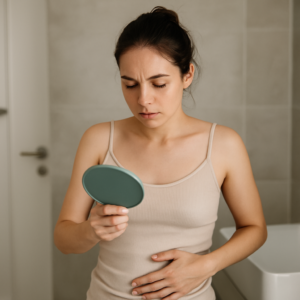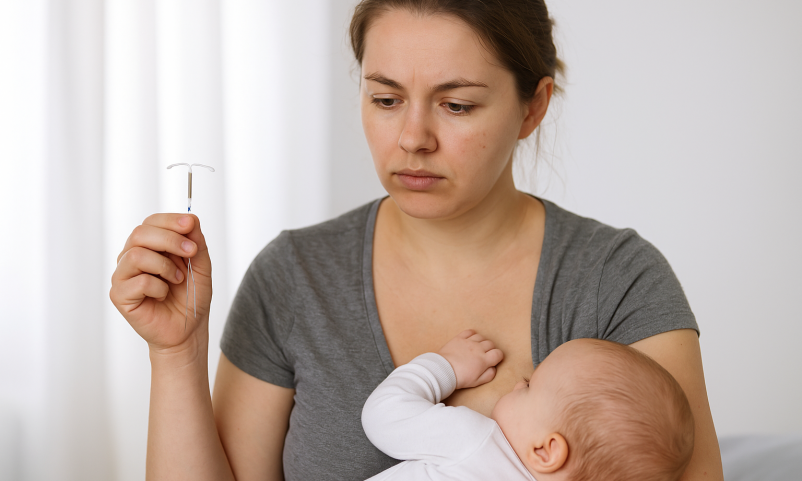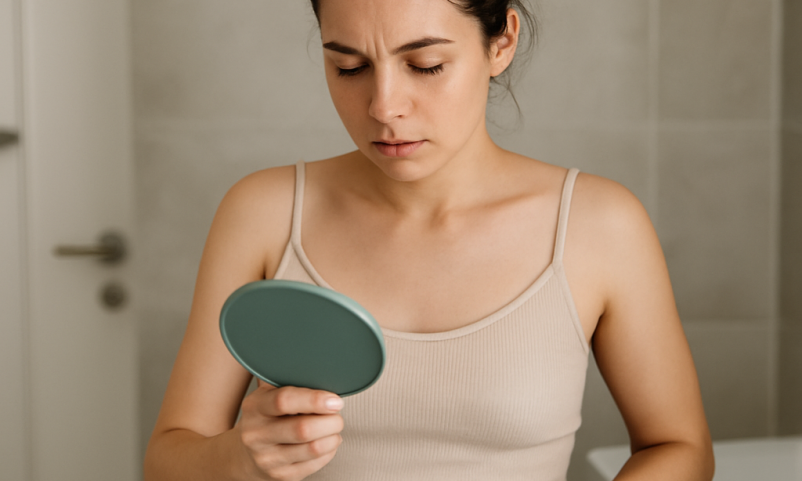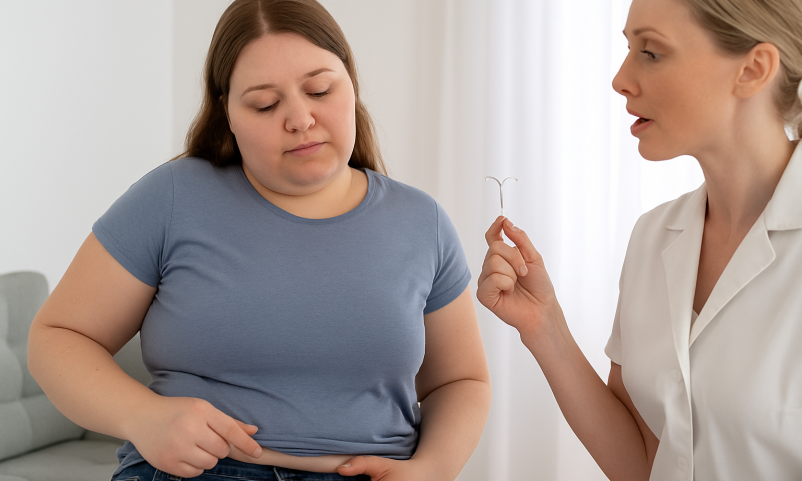It’s not uncommon to hear concerns about IUDs and acne, especially when it comes to hormonal IUDs. Many users worry that breakouts might follow insertion — but current medical evidence does not support IUDs as a direct cause of acne. While skin changes can happen for a variety of reasons, attributing them solely to an IUD oversimplifies a much more complex picture.
This article will clarify some of the most common misconceptions, explore the real reasons why some people might notice skin changes around the time they start using an IUD, and offer helpful tips on how to manage acne if it does occur. For more guidance on contraception and personalised care, you can visit Ezra Clinic.
The Evidence – IUDs Do Not Cause Acne
Despite anecdotal reports, there is no established causal link between IUD use and the development of acne. Most clinical studies and reviews of contraceptive side effects do not list acne as a common or expected outcome, especially with intrauterine devices.
In particular, copper IUDs contain no hormones, which means they have no effect on your skin’s oil production, hormonal balance, or inflammation — the main factors involved in acne formation.
As for hormonal IUDs, they release a small amount of levonorgestrel, a progestin, directly into the uterus. This localised delivery system results in minimal systemic hormone absorption, especially when compared to methods like pills or injections. As a result, any potential influence on your skin is unlikely and uncommon.
Clinical reviews, including those found in resources like the PubMed, consistently show that acne is not a consistent or direct side effect of either type of IUD.
In summary: while hormonal fluctuations can affect skin in general, IUDs are not a medically recognised cause of acne.
Why Do Some Users Think Their IUD Triggered Acne?
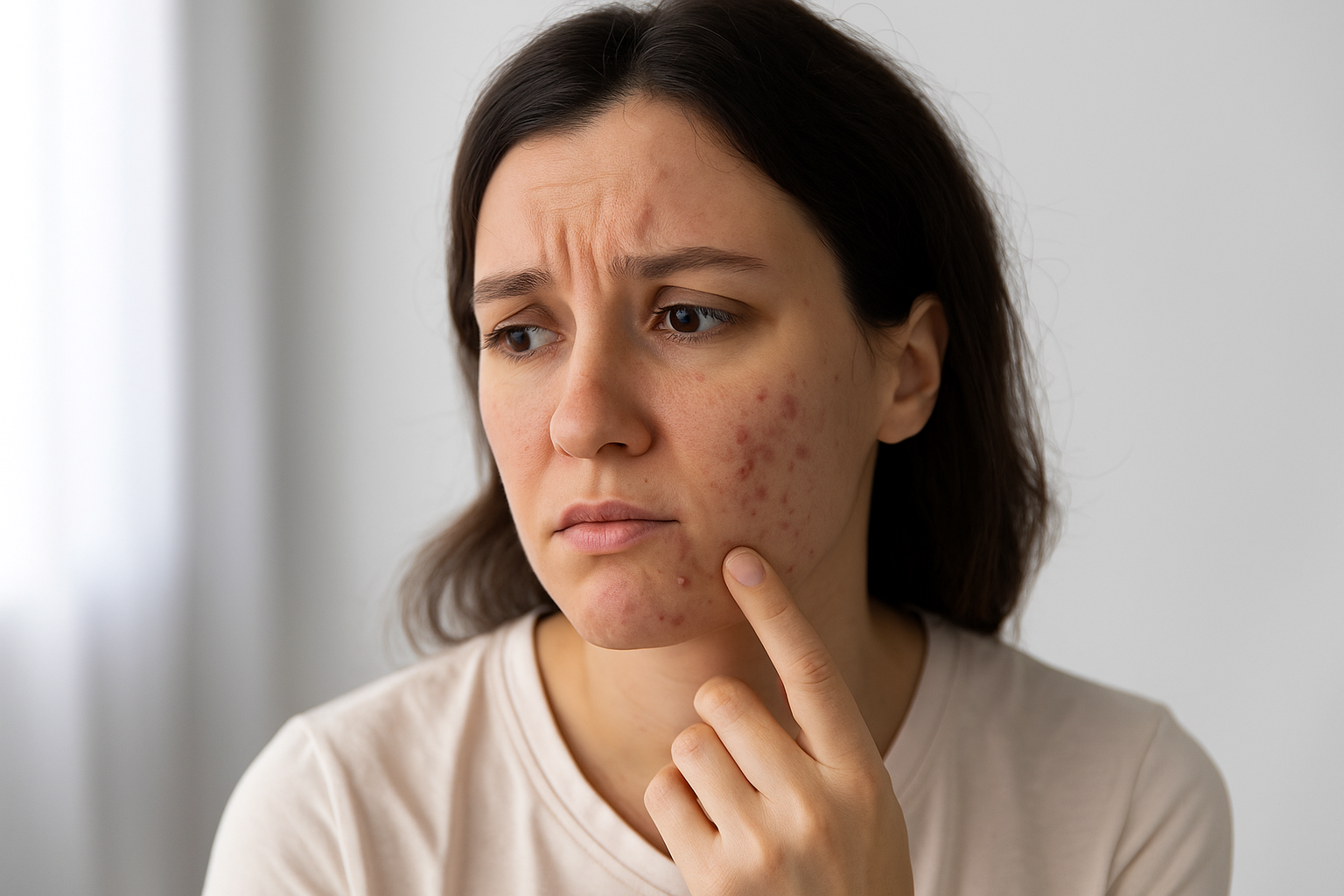
Although there’s no clinical evidence that IUDs directly cause acne, it’s understandable why some users may associate breakouts with their IUD—especially if skin changes occur soon after insertion. However, these changes are usually the result of coinciding factors, not the IUD itself.
Adjustment Period
During the first few months after IUD insertion, your body undergoes a period of hormonal adjustment. This is especially noticeable if you’re switching from a combined oral contraceptive pill (COCP) that contains estrogen. When you stop taking estrogen, your natural hormone levels begin to rebalance, which may temporarily affect sebum (oil) production and skin clarity.
This phase is usually transitional. In many cases, any skin changes or breakouts settle within weeks or months as your body adapts to its new baseline.
Individual Sensitivity
Some individuals are simply more prone to hormonal acne, especially those with a history of breakouts linked to menstrual cycles or conditions like PCOS. If you already have sensitive or acne-prone skin, even minor internal shifts may feel more noticeable.
Additionally, external factors like diet, stress, lifestyle changes, or skincare products often change during the same period as switching contraceptives. These overlapping influences can create the impression that the IUD is responsible, when in fact, the cause is multifactorial.
Hormonal vs Non-Hormonal IUDs – Any Difference for Skin?
Understanding the type of IUD you’re using can help clarify concerns about acne or skin changes. The two main types—hormonal and non-hormonal (copper)—function very differently, and their potential impact on skin health varies accordingly.
Hormonal IUDs
Hormonal IUDs release a low dose of progestin (levonorgestrel) directly into the uterus. This is designed to act locally on the uterine lining, with very limited hormonal absorption into the bloodstream. As a result, most users do not experience significant systemic effects, including those on skin.
In rare cases, however, sensitive individuals may notice mild changes in oil production or skin texture during the adjustment phase. This is more likely if you’re predisposed to hormonal acne or are transitioning from estrogen-containing contraception. Still, these occurrences are uncommon and usually short-lived.
Copper IUDs
Copper IUDs are completely hormone-free. They prevent pregnancy through a local inflammatory response in the uterus and do not interact with the body’s endocrine system. Because there are no hormonal effects, copper IUDs are not associated with any acne or skin-related side effects.
If acne appears while using a copper IUD, the cause is almost certainly unrelated to the device itself.
Skin Changes After IUD Insertion or Removal – What’s Really Happening?
Some users report noticing breakouts after inserting or removing an IUD, which can understandably lead to concerns. However, these skin changes are almost always the result of temporary hormonal shifts, not the IUD itself.
When an IUD is inserted—particularly if you’re switching from a different contraceptive method like the pill—your body begins to adjust to new hormone levels. If you previously relied on estrogen-containing contraception, your body’s natural estrogen and androgen balance may take time to recalibrate. This transitional phase can briefly affect sebum production, which in turn may trigger breakouts in sensitive individuals.
Likewise, after removing a hormonal IUD, your body resumes its natural hormone rhythms, which can also lead to short-term skin changes. These are typically mild and resolve within a few weeks or months, as your hormone levels stabilise.
It’s important to remember that such breakouts are not a reaction to the IUD itself, but rather a response to your body’s shifting hormonal environment—which happens with many forms of contraceptive change.
Managing Acne – If It Happens
If you notice acne while using an IUD, it’s important to approach it with a clear understanding of the possible causes. The IUD itself is unlikely to be the culprit, but that doesn’t mean your skin concerns should be dismissed. Here are three practical steps to take if breakouts appear:
Step 1 – Evaluate Other Causes

First, consider whether any other changes may have triggered your acne. Factors like diet, stress, travel, sleep disruption, or new skincare products can all influence your skin. Also, if you recently stopped taking combined oral contraceptives, the reduced estrogen levels may be temporarily affecting your skin.
Underlying health conditions such as polycystic ovary syndrome (PCOS) or thyroid issues can also contribute to persistent or hormonal acne. If your breakouts are significant, a medical assessment may help identify any hidden causes.
Step 2 – Gentle Skincare Routine
Avoid the temptation to overcorrect. Instead, stick to a simple, non-comedogenic routine that helps calm the skin barrier. Look for gentle cleansers, moisturisers, and spot treatments—and avoid harsh exfoliants or over-washing, which can worsen irritation.
Stability and consistency are key; give new products time to work before making changes.
Step 3 – Professional Advice
If acne persists or worsens, consult a healthcare provider. They may recommend topical treatments, oral medications, or in some cases, hormonal support—especially if your acne is related to a recent change in contraceptive use, not the IUD itself. The goal is to manage skin health without unnecessarily changing your contraception if it’s otherwise working well for you.
Should You Remove the IUD If You Get Acne?
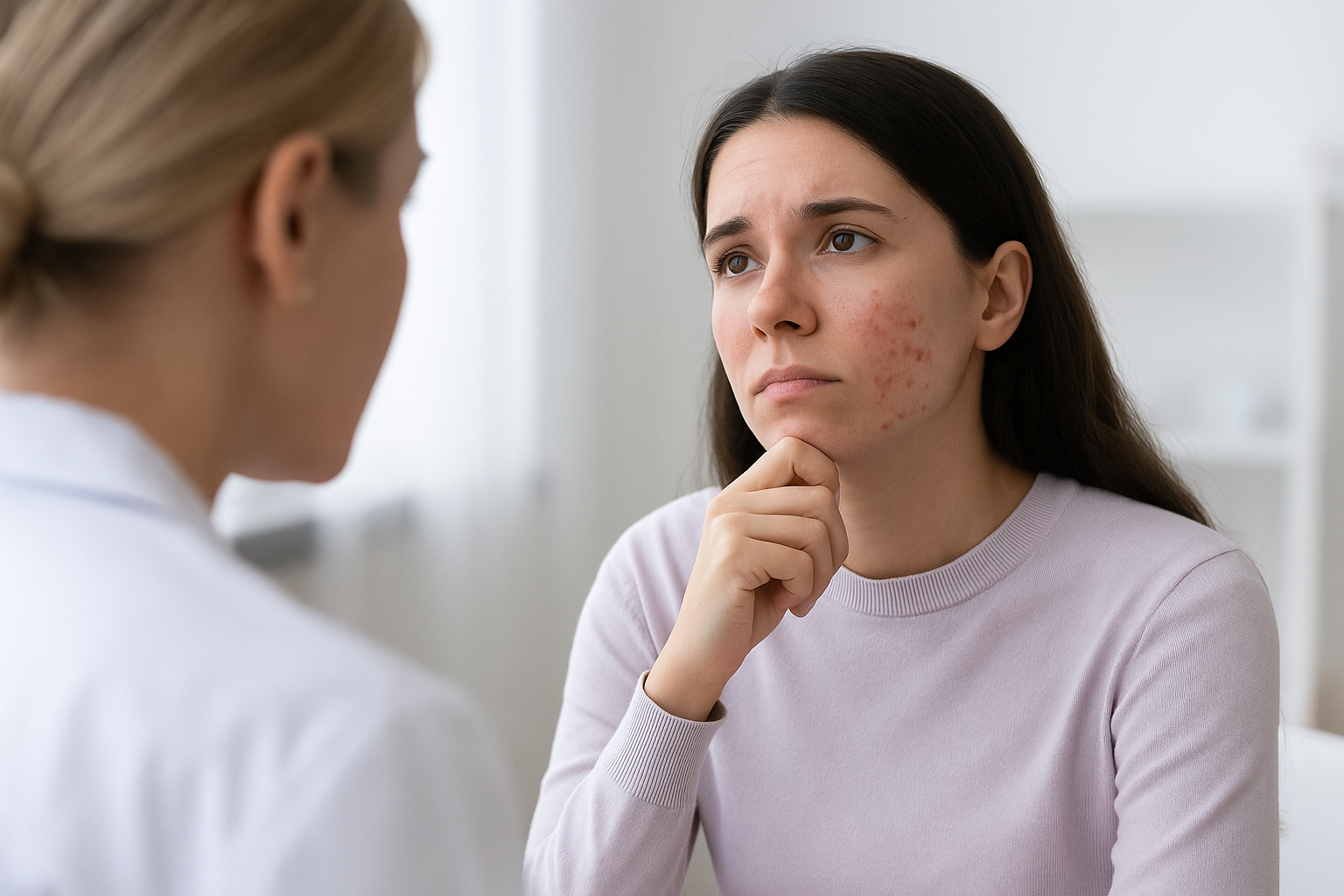
If you experience acne while using an IUD, it’s natural to wonder whether removing the device might help. However, in most cases, removal is not necessary—especially if the IUD is otherwise serving your contraceptive needs effectively.
IUDs, particularly hormonal ones, rarely cause systemic changes significant enough to trigger acne. More often, breakouts are linked to other factors such as stopping previous hormonal contraceptives, lifestyle shifts, or underlying conditions. Managing these root causes is typically more effective than discontinuing your IUD.
Unless your skin concerns are severe, persistent, and clearly linked to the IUD (which is uncommon), it’s generally advisable to explore other treatment options first. A healthcare provider can guide you through topical or oral treatments tailored to your skin, allowing you to maintain reliable contraception while addressing your acne.
Ultimately, the decision to remove an IUD should be based on your overall health goals and comfort, not skin concerns alone—especially when safe and effective acne treatments are available.
Final Thoughts – Clarifying the IUD and Acne Connection
When it comes to acne and IUDs, it’s important to separate perception from evidence. Current scientific research does not support a direct link between IUD use and acne. Both hormonal and non-hormonal IUDs are considered safe, effective, and generally neutral in terms of skin impact.
If you do experience breakouts, they are more likely due to external factors, recent contraceptive changes, or underlying health conditions—not the IUD itself. Recognising this can help you make more confident decisions about your reproductive health without unnecessary concern.
As always, if you’re unsure, the best course of action is to speak with your healthcare provider. They can help you assess what’s really going on and offer treatment options tailored to your needs—without compromising your contraceptive protection.


